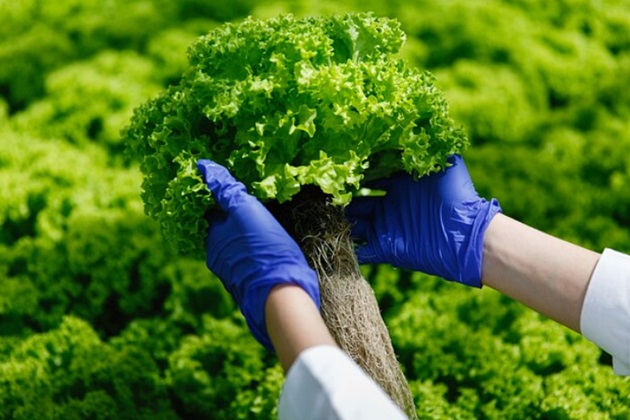805

Despite high ambitions to make agriculture more environmentally friendly, progress in sustainable agriculture in the EU is stagnating, according to the Organization for Economic Cooperation and Development (OECD), which calls for stronger ties between the extended agricultural subsidies of the block and measurable results.
Review of Projects
In a report published, the OECD reviewed the EU's agricultural and food policies in terms of their impact on both sector productivity and sustainability.
The study concludes that over the past decade, the EU's agri-food system has proven resilient to crises, and productivity has continued to grow, but this growth has been slower than in most other OECD countries.
At the same time, sustainability results are also mixed.
"In many EU countries, biodiversity has decreased, emissions continue to rise, and water pressure has not diminished," warns the report.
According to the authors, this "stalled process" in terms of sustainable growth exists despite the EU showing a high level of ambition and investing considerable resources.
For example, the EU's Green Deal with its agricultural branch, the Farm to Fork Strategy, and the Biodiversity Strategy have emphasized sustainability concerns.
However, the report diagnoses a "gap between environmental sustainability policy ambitions and observable results" and recommends a series of measures to make EU efforts more efficient.
PAC More Results-Oriented
For the OECD, one of the main levers the EU has in this context is the Common Agricultural Policy (CAP). After all, the agricultural subsidy program represents about a third of the bloc's budget and is "strategic" for the Green Deal agenda.
To fulfill this role, the OECD concludes that the CAP needs a fundamental "realignment" to more closely link it to "declared priorities and to address disincentives."
In practice, this means that a larger portion of the money should be dedicated to "remunerating public goods" such as environmental and climate protection.
Currently, a large portion of CAP funds goes to so-called direct payments, which are linked to certain basic conditions but are generally awarded based on the agricultural area of a farm.
While acknowledging that "substantial progress" has been made in recent decades toward more targeted CAP subsidies, the report finds that "the most distorted and potentially most environmentally harmful forms of support," such as direct payments, still represent nearly a quarter of the support given to producers and should continue to be phased out.
Berlin Prepares to Leave Its Mark on Future EU Agricultural Funds
Germany is already preparing to campaign for its vision for the future Common Agricultural Policy (CAP): moving away from area-based payments and toward payments for providing public goods.
Income Support Only for Those in Need
This echoes the German government's vision of the future CAP, which also includes a shift away from direct payments and toward incentives for public services.
However, the OECD report does not call for a departure from the role of the CAP as income support for farmers. It does, however, call for this support to be offered in a more targeted manner.
As a first step, this means that the instruments aimed at supporting incomes and those aimed at sustainability should be clearly separated.
Income support measures should then be limited to those who need them. For this purpose, the EU should examine how to better target funds to farms with low incomes.
Moreover, more work is needed to ensure that funds are distributed fairly and within farm households, including between men and women in a family.
Focus on Innovation
Meanwhile, the report also emphasizes the need to encourage innovation in the agri-food sector.
While the EU achieved agricultural productivity growth for a long time through increasing agricultural intensification, it is said to have had harmful consequences for the climate and the environment.
This is where innovation comes in as an alternative path to improving productivity.
"The ecological transition of the EU's food systems requires a transformation in which innovation plays an essential role in ensuring sustainable productivity growth," the report emphasizes.
Among the recommendations to better stimulate innovation are better integration of research and innovation policies with CAP funds, while member states should be encouraged to "develop their own agri-food innovation strategies."
The report also calls for the use of a portion of CAP funds dedicated to sustainability for skills improvement programs and counseling services for farmers.
"Evolving requirements require new skills and capabilities among agricultural workers, including digital, environmental, and entrepreneurial management skills," it underscores.




